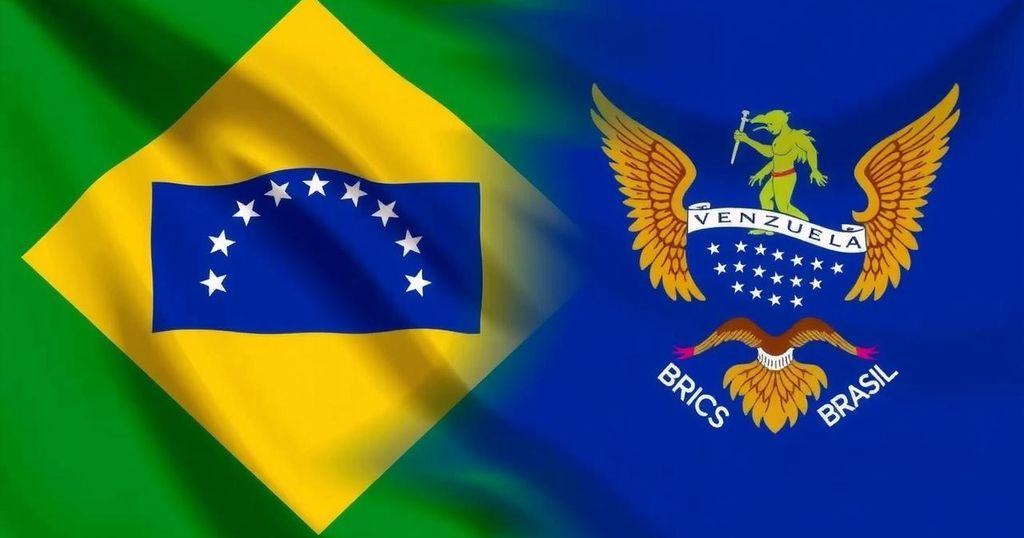Venezuela Recalls Ambassador from Brazil Amid BRICS Membership Dispute
Venezuela has recalled its ambassador from Brazil, citing outrage over Brazil’s veto of its BRICS membership application. This decision stems from escalating tensions between the two nations, particularly following the controversial re-election of President Nicolas Maduro, which Brazil has not recognized. The Venezuelan Foreign Ministry condemned Brazilian officials for interventionist remarks and accused them of failing to respect Venezuelan sovereignty.
In a significant diplomatic development, Venezuela has officially recalled its ambassador from Brazil following a dispute concerning its unsuccessful application to join the BRICS alliance, which includes major developing nations. This action was announced by Venezuela’s Foreign Ministry, which expressed strong discontent over what it described as ‘interventionist and rude’ remarks made by Brazilian officials. The Venezuelan government criticized Brazil for blocking its BRICS membership during the recent summit in Kazan, Russia, where Brazil’s position was seen as a direct affront to Caracas’s aspirations. Moreover, this escalation occurs in the context of deteriorating relations between the two neighboring South American countries, particularly after Venezuelan President Nicolas Maduro’s controversial re-election, which Brazil has refused to recognize. The situation has further intensified with Brazil’s top foreign policy advisor, Celso Amorim, stating that Venezuela had ‘breached the trust’ of its BRICS partners, prompting Venezuelan officials to accuse him of aligning with North American interests and dismissing Venezuelan sovereignty. Recently, the political climate has been further exacerbated by violent government crackdowns on dissent in Venezuela following the disputed election results, which have reportedly led to numerous fatalities among protesters.
The diplomatic tensions between Venezuela and Brazil have historical roots, particularly related to electoral legitimacy and international alliances. Venezuela’s attempt to join BRICS—a geopolitical group including Brazil, Russia, India, China, and South Africa—was undermined by Brazil’s refusal to acknowledge its governing processes following the disputed elections. This has been a point of contention ever since President Maduro announced his victory amidst significant allegations of electoral fraud and irregularities, which many in the international community, including Brazilian authorities, have categorically rejected. The larger implications of this incident go beyond bilateral relations, as they reflect the geopolitical struggle within Latin America over leftist and progressive governance versus neoliberal and imperialist influences.
In summary, Venezuelan-Brazilian relations have reached a new low following Venezuela’s withdrawal of its ambassador in response to Brazil’s opposition to its BRICS membership. The controversy surrounding the recent elections in Venezuela, accusations of electoral misconduct, and the subsequent crackdowns on dissent have only exacerbated tensions. This incident highlights the broader themes of trust and political alignment in the region, as well as the impact of international diplomacy on national governance.
Original Source: www.aljazeera.com




Post Comment